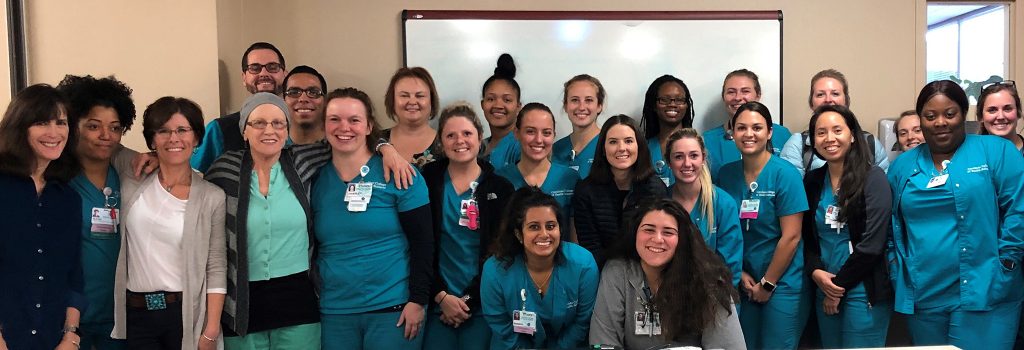Last year, nearly 13,000 medical and nursing students gained a better understanding of ovarian cancer—an understanding they’ll carry with them as they begin seeing patients of their own—by hearing the stories of our Survivors Teaching Students® survivor and caregiver volunteers.
These experiences, shared face to face in classrooms with future healthcare professionals, leave a more lasting impact than can ever be gained through a textbook.

So what happens when medical classrooms are empty, and students move online? STS moves with them.
Our team of over 900 volunteers has risen to the moment, diving headlong into online presentations and digital surveys—and students have welcomed them with (virtual) open arms.
It would take a lot to keep our incredible volunteers away from this program. Just last week, one of our presenters, Joanne M., spoke to a classroom from her hospital bed, laptop propped on her knees, while receiving in-patient chemotherapy.
The move to virtual learning has opened doors, allowing us to reach nursing schools that are traditionally online only—something we were unable to do before.
And perhaps most importantly, learning is no longer bound by state lines. An STS volunteer living in Atlanta, Georgia can now speak to a full class of medical students in west Texas.
Just as this COVID-19 crisis is an obstacle to overcome, it is also an opportunity to expand and improve our programs. We must—so that we can continue to educate the next generation of healthcare providers who may one day diagnose someone we love.
As so much changes around us, the need to support the ovarian cancer community with programs like STS—as well as the need to continue with research and advocacy—remains critical. If you are in a position to do so, please make a gift today.


